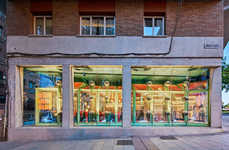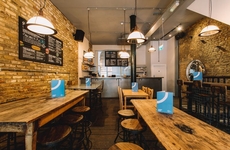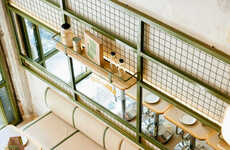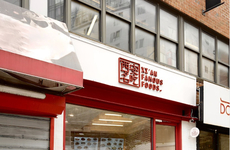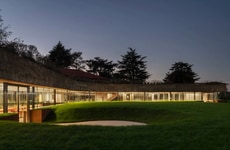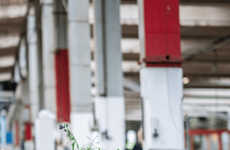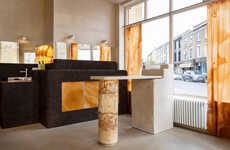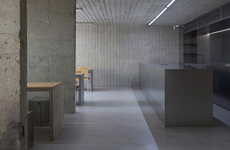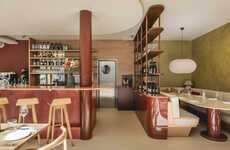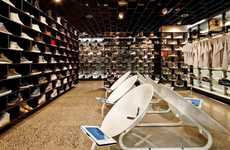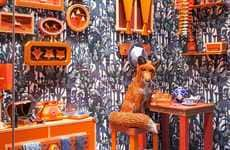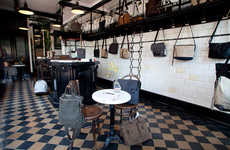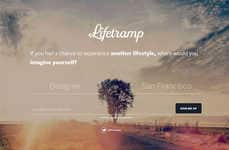
Elements of Fastvinic Cafe by Alfons Tost are Designed to Be Recycled
Katherinev123 — October 21, 2011 — Art & Design
References: alfonstost & dezeen
Interior designer Alfons Tost has designed this unique eco-friendly interior for the Fastvinic cafe in Barcelona.
The Fastvinic cafe has an over-arching warehouse-style look, with its tall wooden and metal shelves that are lined with potted plants -- which help the "regeneration of the oxygen," says the designer -- and its hanging lamps, storage boxes and overall simplistic aesthetic. At the front of the cafe, a large glass window separates diners from the kitchen, allowing patrons to see their sandwiches being made. The cafe also has a lower level that houses the bathrooms, which feature charming basket-like sinks.
Tost's goal was to infuse the entire space with sustainable elements; indeed, he says that the entire cafe was designed with elements that could be recycled and dismantled. Every part of the Fastvinic cafe is eco-friendly, from the lights, which operate on LEDs, to its food containers, which are 100 percent compostable.
The Fastvinic cafe has an over-arching warehouse-style look, with its tall wooden and metal shelves that are lined with potted plants -- which help the "regeneration of the oxygen," says the designer -- and its hanging lamps, storage boxes and overall simplistic aesthetic. At the front of the cafe, a large glass window separates diners from the kitchen, allowing patrons to see their sandwiches being made. The cafe also has a lower level that houses the bathrooms, which feature charming basket-like sinks.
Tost's goal was to infuse the entire space with sustainable elements; indeed, he says that the entire cafe was designed with elements that could be recycled and dismantled. Every part of the Fastvinic cafe is eco-friendly, from the lights, which operate on LEDs, to its food containers, which are 100 percent compostable.
Trend Themes
1. Eco-friendly Interiors - Incorporating sustainable and recyclable elements into interior design for eco-friendly spaces.
2. Warehouse-style Cafes - Creating cafe spaces with a warehouse aesthetic, featuring tall shelves and simplistic design.
3. Compostable Food Containers - Utilizing 100 percent compostable food containers for sustainable dining experiences.
Industry Implications
1. Interior Design - Opportunity for interior designers to specialize in eco-friendly and sustainable designs for businesses.
2. Hospitality - Hospitality industry can adopt warehouse-style aesthetics and eco-friendly practices to enhance guest experiences.
3. Food Packaging - Food packaging companies can focus on developing compostable and environmentally-friendly containers.
5.6
Score
Popularity
Activity
Freshness

